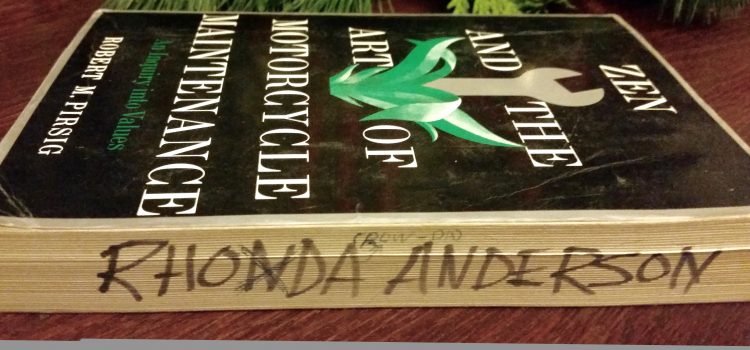
For fun, these are my top-twelve best books on writing, storytelling, memoir and creativity. As a writer pushing myself to improve, I always have a guidebook on my Kindle or Audible queue. This list includes the works that have inspired mee and stuck with me. Some are on my writing desk right this very minute. I want to read every one of these books again and again (and I have). These are not necessarily in order of favorites since some newer loves appear at the bottom.
1. On Writing: A Memoir of the Craft, by Stephen King
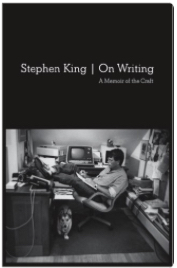 I cannot say enough how much I have learned from Stephen King’s On Writing. I had never actually read a Stephen King book before picking this up because horror isn’t my cup of tea. This guide, however, is a witty and practical masterpiece. The first half is King’s personal memoir on becoming a writer, and the second half shares his lessons in the craft. I come back and read it again every two or three years and I am due again for it, actually. As a note, I learned about this book from a friend in my very first writing group. She teaches college creative writing and uses this as a guide in her courses. Every time I read this book, I have a burst of creativity. Link.
I cannot say enough how much I have learned from Stephen King’s On Writing. I had never actually read a Stephen King book before picking this up because horror isn’t my cup of tea. This guide, however, is a witty and practical masterpiece. The first half is King’s personal memoir on becoming a writer, and the second half shares his lessons in the craft. I come back and read it again every two or three years and I am due again for it, actually. As a note, I learned about this book from a friend in my very first writing group. She teaches college creative writing and uses this as a guide in her courses. Every time I read this book, I have a burst of creativity. Link.
2, 3 and 4. Save the Cat, Save the Cat Goes to the Movies, and Save the Cat Strikes Back by Blake Snyder
This trilogy is written for screenwriters but the principles are universal to storytelling. Without an MFA in writing, these have become my textbooks. That is why each one gets its own spot on this list. Mr. Snyder’s method for plotting out a story on “The Board” gives me a reality check for whether my writing has a strong spine and hits the right emotional notes. He also outlines universal story types, tells what kind of story you have, and illustrates how successful movies hit certain beats. There are creative people who will rebel against anything in the realm of a formula but in my biography writing, I always find that the key elements are naturally there in true tales. Great stories mirror life, and truth is even better than fiction. It is my job in a memoir to highlight the key notes and edit out what’s boring.
These books are pithy and full of worldly wisdom. In short, they are a guide for giving readers, “the same, only different.” Humans crave certain elements in a story, but with a fresh creative twist.
I also feel like when an early explorer painstakingly charts a map, it saves me from aimless wandering. Also, I find that structure actually enhances and triggers my creativity, triggering ideas rather than limiting me. For the ultimate in tight structure, I am reminded of haiku. How formulaic is that?
Each book is great on its own, although I recommend starting with the first and working your way through the series. Each builds upon the other, without being redundant. The late Mr. Snyder is one of my heroes because he was generous in sharing his trade secrets. I’ll talk more about these books in future articles because his methods give me discipline, yet simultaneously unlock creativity. Links: Save the Cat, Save the Cat Goes to the Movies, and Save the Cat Strikes Back
5. Big Magic: Creative Living Beyond Fear, by Elizabeth Gilbert
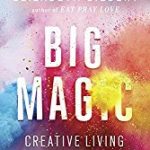 If you haven’t noticed, I totally believe in the kind of magic that relates to forces outside ourselves that guide our creative work. This luminous book is empowering and grounding at the same time. Gilbert urges everyone to live an art-filled life, without feeling like we need to quit our day jobs (Disclaimer, I totally did that.) She believes that nobody is too old or too young to create, and cautions against going into debt for a degree in art. The focus here is on exuberant creativity, free from tortured-artist stereotypes. Suffering for the art is seriously not productive, folks. I believe in her notion that ideas have an energy of their own, approaching humans as co-creators in the process. We get to choose whether to engage in this creativity with the ideas, but we don’t get to set the terms. Ms. Gilbert lives these beliefs, is a worldwide bestselling phenomenon (Eat, Pray, Love), and basically, I want to live as brave a life as she does. Even with my modest abilities, this book makes me feel joyful about writing. Link.
If you haven’t noticed, I totally believe in the kind of magic that relates to forces outside ourselves that guide our creative work. This luminous book is empowering and grounding at the same time. Gilbert urges everyone to live an art-filled life, without feeling like we need to quit our day jobs (Disclaimer, I totally did that.) She believes that nobody is too old or too young to create, and cautions against going into debt for a degree in art. The focus here is on exuberant creativity, free from tortured-artist stereotypes. Suffering for the art is seriously not productive, folks. I believe in her notion that ideas have an energy of their own, approaching humans as co-creators in the process. We get to choose whether to engage in this creativity with the ideas, but we don’t get to set the terms. Ms. Gilbert lives these beliefs, is a worldwide bestselling phenomenon (Eat, Pray, Love), and basically, I want to live as brave a life as she does. Even with my modest abilities, this book makes me feel joyful about writing. Link.
6. Long Story Short: The Only Guide to Storytelling You’ll Ever Need, by Margo Lietman
This book was fab on audio, narrated by the author who comes from the world of stand-up comedy, and is a storytelling Grand Slam winner. Now she teaches storytelling and would I love to take one of her classes. The mantra she repeats is simple, “tell your story,” then she shows us how to do it better. Reading the book is a close second, though. It’s fun, insightful, and I am taking pointers to heart. Leitman is a master who started with a storytelling show before that was a thing. I bow to her greatness. Link.
7. Zen and the Art of Motorcycle Maintenance, by R.M. Pirsig
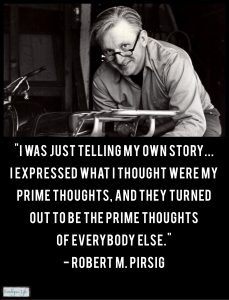 Not only would I like to give a shout-out to Mr. Hansen’s AP English class, this is a nod to what I think is one of the all-time great books of the 20th Century. I know, that’s a heady pronouncement given that I don’t exactly write for the New Yorker, but hey, this is my list. Still, after making this claim, I searched, and it does make top lists, like this one from NPR. On a personal level, this book was formative for me in high school, and was just as thought-provoking when I read it again recently. It is both beautiful and smart (really, really smart) but not pretentious. At its heart, this book asks the question, “What is quality?” Zen and the Art of Motorcycle Maintenance is one part memoir of a motorcycle trip across the country, but like all road trip tales, the destination is really to find oneself. This is also a course in philosophy and in final part, is a shining example of quality itself. The motorcycle maintenance stuff is fun too. I would have ranked this book higher on this list on grounds of how much I admire it, but it doesn’t focus on the nitty gritty of writing, per se. The other guides on this list cover that, and this is a class of its own. Still, it is very much about creativity and the process of making something meaningful. Link.
Not only would I like to give a shout-out to Mr. Hansen’s AP English class, this is a nod to what I think is one of the all-time great books of the 20th Century. I know, that’s a heady pronouncement given that I don’t exactly write for the New Yorker, but hey, this is my list. Still, after making this claim, I searched, and it does make top lists, like this one from NPR. On a personal level, this book was formative for me in high school, and was just as thought-provoking when I read it again recently. It is both beautiful and smart (really, really smart) but not pretentious. At its heart, this book asks the question, “What is quality?” Zen and the Art of Motorcycle Maintenance is one part memoir of a motorcycle trip across the country, but like all road trip tales, the destination is really to find oneself. This is also a course in philosophy and in final part, is a shining example of quality itself. The motorcycle maintenance stuff is fun too. I would have ranked this book higher on this list on grounds of how much I admire it, but it doesn’t focus on the nitty gritty of writing, per se. The other guides on this list cover that, and this is a class of its own. Still, it is very much about creativity and the process of making something meaningful. Link.
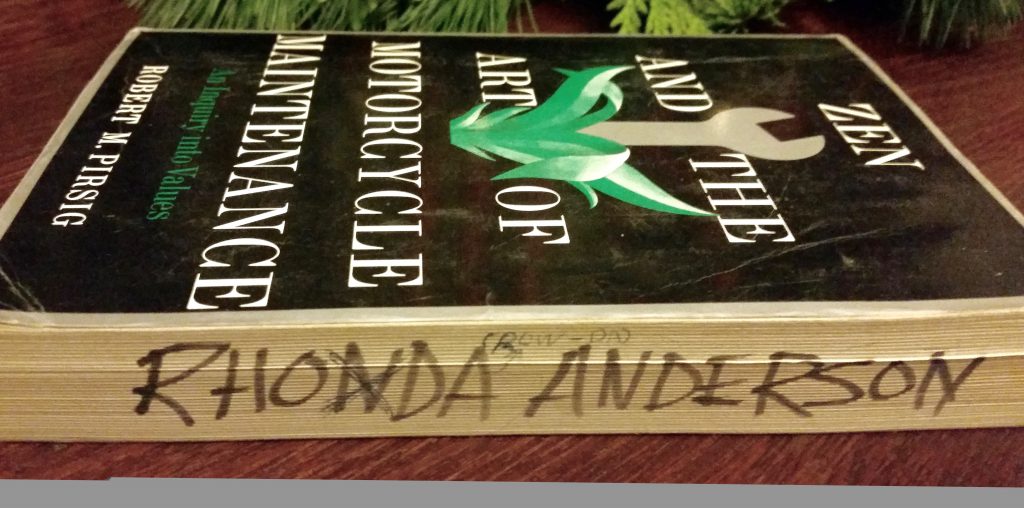
8. Outliers: The Story of Success by Malcom Gladwell
While not specifically on writing, this book has an important takeaway for anybody wanting to become great at something: Put in the time. To be precise, know that it takes 10,000 hours to become really good at anything. Passion and natural inclination help too, but this important idea motivates me to keep paying my dues. It offers other insights about what some of the world’s greatest success stories have in common (e.g., Bill Gates, The Beatles) in Gladwell’s trademark style of research wrapped in memorable anecdotes. For me, though, the 10,000 hour challenge was what I took to heart. Each day I plod away to earn my place at the table. Link.
Related: A Thing Worth Doing is Worth Doing Badly
9. Bird by Bird: Some Instructions on Writing and Life, by Ann Lamott
Ms. Lamott is a beautiful writer and this makes want to work harder, yet also leaves me with a sinking fear that I’ll never in a million years be as good as she is. That happens whenever I read great writing. (People I know who live in the realm of creativity battle some version of this self-doubt.) Lamont is a bestselling memoir author and she tells stories from her own life and her personal rules for writing memoir. One example: Tell the Truth. That sounds obvious, but she discusses some of the nuances of what that means when writing about a person’s life. The book is a how-to guide, peppered with personal vignettes and definitely worth reading again and again. Link.
10. War of Art:Break through blocks and win your inner creative battles, by Steven Pressfield
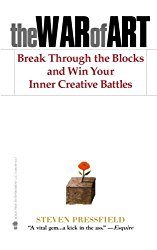 This is #10 on the list not because it doesn’t deserve to be a #1 or a #2, but only because it is a new addition and I am too lazy to re-number. I have now read this book several times, coming back to it every time I need a boost to overcome Resistance with a capital R. Pressfield, who also wrote The Legend of Bagger Vance, has figured out what keeps creatives from winning the battle, and how to overcome it. The book is genius and I love him for helping me in very real and practical ways. The audio version is also wonderful and I listened to it back-to-back twice in one weekend the first time I got it. Truly, I believe every writer should read this book quick, fast, and now. Link.
This is #10 on the list not because it doesn’t deserve to be a #1 or a #2, but only because it is a new addition and I am too lazy to re-number. I have now read this book several times, coming back to it every time I need a boost to overcome Resistance with a capital R. Pressfield, who also wrote The Legend of Bagger Vance, has figured out what keeps creatives from winning the battle, and how to overcome it. The book is genius and I love him for helping me in very real and practical ways. The audio version is also wonderful and I listened to it back-to-back twice in one weekend the first time I got it. Truly, I believe every writer should read this book quick, fast, and now. Link.
Also, his books The Artist’s Journey, and Do the Work are also excellent.
11. Fast-Draft Your Memoir: Write Your Life Story in 45 Hours, by Rachael Herron
This is a new addition to my list and, like The War of Art above, should rank higher, I just don’t want to renumber this page, ha. I was leery of this book because the title seems gimmicky, but it came well recommended. I’m not exaggerating now when I say that this is is one of the most concise and practical books on writing memoir I’ve ever read (and I’ve read a LOT of them – many of which did not make my cut for inclusion on this page). Rachel Herron has written both memoir and fiction herself, a potent combination. She teaches memoir workshops at both Berkeley and Stanford, has an MFA in writing, and is on the board for NaNoWriMo. In short, she knows her stuff, and is also funny and down-to-earth. Most of all, her book is flat-out practical. Look, I teach what she teaches, although from a little different angle, and I would totally take one of her classes. Her methods are solid and the book is concise. I would recommend it to any of my students or readers. You won’t be sorry to invest the small amount of time to read what she has to say. I especially loved her method for editing various drafts, and her approach to asking permission from people who appear in her books. There are some who get the opportunity to read her books before publication and people who do not. There are a couple of people in her life (e.g., her spouse) who get absolute veto power, and other people she won’t even ask. It’s sage advice. Here is a link to get Fast Draft your Memoir on Amazon.
12. The Creative Act, A Way of Being, by Rick Rubin
This simple book is full of wisdom where each section reminds me of important ideas related to the process of creating, and of devotion to art. I’ve read it at least three times, and there is always something new, something fresh for me to ponder. I really, really love this book.
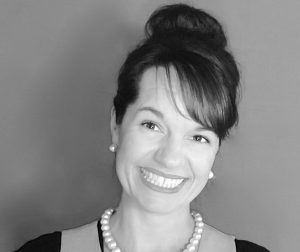
Rhonda Lauritzen is the founder and an instructor at Evalogue.Life – Tell Your Story. Rhonda lives to hear and write about people’s lives. She believes that when you tell your story, it changes the ending., She and her husband Milan restored an 1890 Victorian in Ogden. She especially enjoys unplugging in nature. Check out her books: How to Storyboard, and Every Essential Element. Most recently she was the writing coach of bestselling author, Rob A. Gentile, who wrote Quarks of Light, A Near-Death Experience: What I Saw That Opened My Heart
This article contains affiliate links, which means if you purchase one of the books I listed here from Amazon, I make a very small commission.
